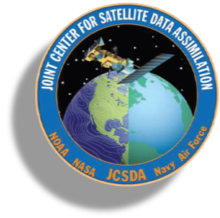The annual JCSDA Technical Review Meeting and Science Workshop enables scientists partnering with JCSDA and the external research community to share the latest developments in satellite data assimilation, particularly as they relate to the status of JCSDA priorities and projects.
As announced in early March, the 19th JCSDA Technical Review Meeting and Science Workshop will be held during the week of May 16 - 18, 2023.
Registration is now open with a registration deadline of April 17, 2023 for all prospective attendees.
Please visit the meeting page for more information and details on how to register for this event.
We look forward to your participation in May, and appreciate your ongoing support and interest in the Joint Center for Satellite Data Assimilation.





